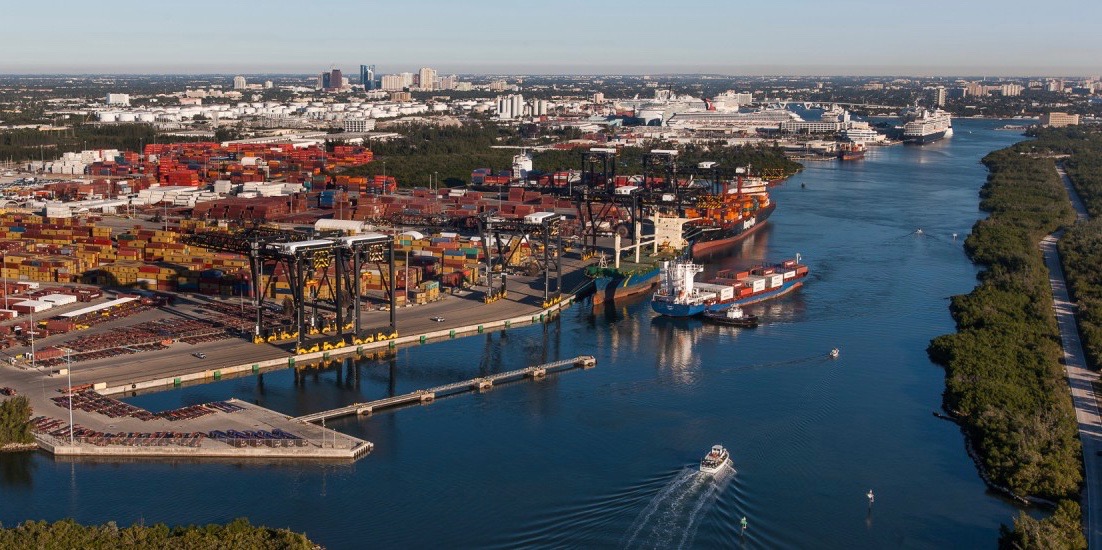
Ab-normalization: Florida imposes sanctions on itself
When Ringling Bros. and Barnum and Bailey Circus folded its tent last month, 400 Floridians lost their jobs. Now, Florida’s Governor Rick Scott appears determined to turn his state’s drive for jobs into a Cuba policy clown show.
Gov. Scott, on the eve of a “jobs summit” that he is staging, unleashed a twitter storm and released a state budget to pressure port officials and cut off funds for port projects to stop Florida ports and businesses from trading with Cuba.
At a time when the Governors of nine states, between 2015 and 2017, have brought trade delegations to Cuba for the express purpose of doing deals and creating two-way trade with Cuba, Gov. Scott, uniquely, seems determined to kill jobs – or prevent jobs from being created – in his own state. Simply because those jobs would depend on Florida having commercial relations with Cuba.
Whether he is acting out of “principle” or acting out of self-interest, Gov. Scott is “acting out” and most abnormally for a government official.
Except. Wait a minute. Tweeting? Pushing people around? Breaking trade deals? This seems awfully familiar.
When it comes to Cuba, Florida – to put it kindly – has always been a paradox unable to come to terms with itself. No state in the union has worked harder to impose sanctions on Cuba, and no state has benefited more from trade and travel with the island.
Since 1959, it has been the center of resistance to the existence of the Cuban system. Now, majorities in the diaspora community and across Florida support an open policy. Florida’s airports, slowly then dramatically, have filled with hundreds of thousands of Cubans and Cuban Americans flying back and forth between the U.S. and Cuba. After the passage of a revised trade sanctions law in 2000, the state’s ports saw off the ships sailing to Havana, and then to Mariel, with containers of food and the other limited but legally traded items U.S. businesses could sell to the island.
Until January, as the U.S.-Cuba Trade and Economic Council points out, it was the state’s policy under Governor Scott to make normal trade with Cuba a priority for Florida’s seaports. “Due to the proximity of the state to Cuba and the cultural ties, expanded trade opportunities could be dramatic.” Some business leaders believed Sunshine State trade with Cuba could one day create 20,000 local jobs.
Yes, trade with Cuba does build profits for U.S. businesses and create U.S. jobs. Not just for Florida. Since these opportunities are also open to ports up and down the Atlantic coast, and along the southeast states on the Gulf, Florida has competition; to preserve and expand employment, it has to keep up its investments in trade with Cuba.
Enter the ringmaster. While others wait for the Trump Administration to review Cuba policy (Reuters says that’s happening now), Rick Scott leapt into the ring.
As officials at Port Everglades and the Port of Palm Beach prepared to welcome Cuban counterparts from Cuba’s National Port Administration and sign Memoranda of Understanding (MOU) to build cooperation between their ports and Cuba, Gov. Scott made it clear he didn’t want Florida ports to make deals with Cuba.
Scott tweeted in English and Spanish, as the Miami Herald reported, “We cannot condone Raul Castro’s oppressive behavior,” and added that he’d ask “state legislators to cut off funding for any Florida ports that ‘enter into any agreement with [the] Cuban dictatorship.'” This caused the knees of Port Everglades and Palm Beach to buckle; there, officials agreed to meet the Cuban delegation but not to sign the MOUs. And, as we report below, it had the same effect on the Port of Tampa, with a spokesperson even denying it ever planned to sign an MOU with Cuba to a reporter who filed a story with a copy of the agreement in his hands.
Yes, the Scott saga even comes with an alternative set of facts. As Paul Guzzo wrote, “The truth is, according to an internal document obtained by the Tampa Bay Times, Port Tampa Bay had already drawn up a memorandum, gotten approval from the federal office, circulated the word in maritime circles and garnered congratulations for its efforts.”
Deciding, apparently, to enlarge rather than quell the problem, Scott put language in his budget, as the Miami Herald reported, that says no money can be “allocated to infrastructure projects that result in the expansion of trade with the Cuban dictatorship because of their continued human rights abuses.”
The Bradenton Herald slammed the governor for his “inconsistency” for supporting trade with China, and added that “Scott’s threat puts Florida at a competitive disadvantage to ports along the Gulf Coast, East Coast, Caribbean islands and Central America [which are] signing agreements with Cuba.”
We asked Dr. Michael Bustamante, a scholar at Florida International University, to interpret the Governor’s behavior: “It’s clear Governor Scott is returning to an old playbook, one in which U.S.-Cuba policy – or in this case Florida-Cuba policy – is a function of domestic politics, not national or state interests.”
The day Gov. Scott released his budget and doubled down on his investment in stopping bilateral trade with Cuba, the Miami Herald observed, “the first legal maritime shipment from Cuba to the U.S. in more than 50 years” had made its way to Miami-Dade County, after reaching Port Everglades the week before. It was two containers of “artisanal” Cuban charcoal. And more may be coming to a pizza oven near you, even if Governor Scott succeeds in sanctioning businesses in his own state, in the name of shutting down trade with Cuba.
What a circus.
(From Cuba Central)
[Photo at top of Port Everglades in Fort Lauderdale, Florida.]


